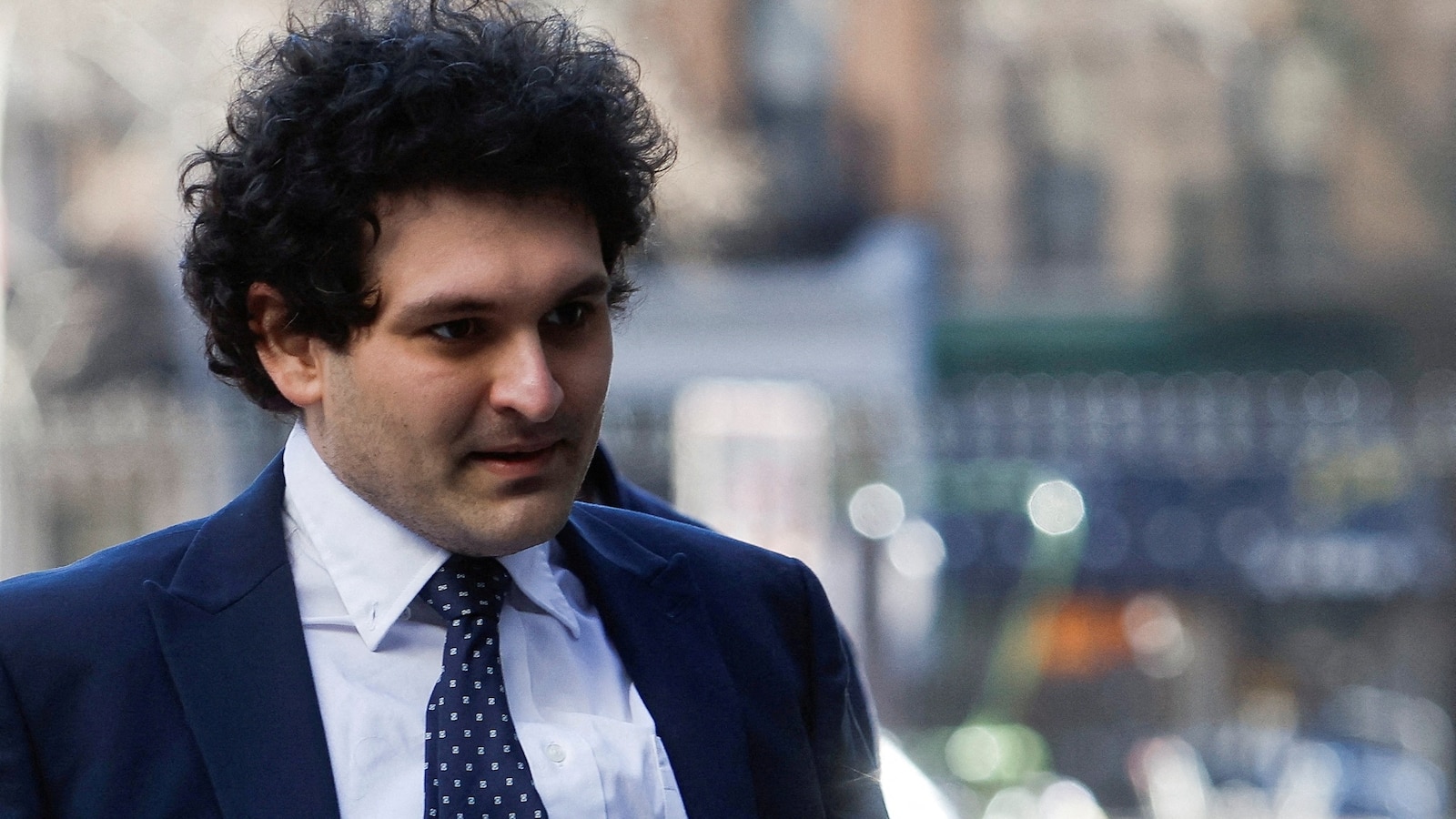Sam Bankman-Fried will be sentenced Thursday for orchestrating what prosecutors have called one of the biggest financial frauds in American history.
Bankman-Fried, 32, of Stanford, California, was convicted last November of two counts of wire fraud conspiracy, two counts of wire fraud and one count of conspiracy to commit money laundering, each of which carries a maximum sentence of 20 years in prison. He was also convicted of conspiracy to commit commodities fraud and conspiracy to commit securities fraud, each of which carries a maximum sentence of five years in prison.
He was accused of using customer deposits on the cryptocurrency trading platform FTX, the company he founded, to cover losses at his hedge fund, pay off loans and buy lavish real estate, among other personal expenses.
Prosecutors have said he deserves between 40 and 50 years in prison because of the “enormous scale of the fraud.”
More than $8 billion of customer money was misappropriated, which “puts this crime in a class of cases that can be counted on one hand,” prosecutors said. Beyond that, Bankman-Fried “victimized tens of thousands of people and companies, across several continents, over a period of multiple years. He stole money from customers who entrusted it to him; he lied to investors; he sent fabricated documents to lenders; he pumped millions of dollars in illegal donations into our political system; and he bribed foreign officials.”
Judge Lewis Kaplan immediately rejected Bankman-Fried’s claim Thursday that his fraud was not $8 billion as prosecutors alleged.
“The defendant’s argument hinges on what amounts to an assumption that customers of FTX are going to be made whole in the bankruptcy,” Kaplan said. “The defendant’s assertion that FTX customers and creditors will be paid in full is misleading; it is logically flawed.”

Former FTX Chief Executive Sam Bankman-Fried, who faces fraud charges over the collapse of the bankrupt cryptocurrency exchange, walks outside the Manhattan federal court in New York City, U.S. March 30, 2023.
Amanda Perobelli/Reuters, FILE
Bankman-Fried stepped down from his role at FTX in November 2022 amid a rapid collapse that ended with the company — once valued at $32 billion at its peak — declaring bankruptcy.
Defense attorneys called the government’s sentencing ask “barbaric” and argued Bankman-Fried deserved about six years in prison because he’s “deeply, deeply sorry he is for the pain he caused.” They also said the “harm to customers, lenders, and investors is zero.”
His lawyers portrayed him as quirky, not conniving, someone who has trouble with conventional styles of communication.
“Sam is not the ‘evil genius’ depicted in the media or the greedy villain described at trial. He is a 31-year-old son, brother, friend, humanitarian, and philanthropist. He is a brilliant, complex and humane person,” defense attorneys said.
Prosecutors have cast Bankman-Fried differently.
“With all the advantages conferred by a comfortable upbringing, an MIT education, a prestigious start to his career in finance, and a worthy idea for a startup business, Bankman-Fried could have pursued the rewarding, productive, and altruistic life he has sketched out in his sentencing submission. But instead, his life in recent years has been one of unmatched greed and hubris; of ambition and rationalization; and courting risk and gambling repeatedly with other people’s money,” prosecutors said.
Victims are expected to give impact statements ahead of Bankman-Fried’s sentencing.

